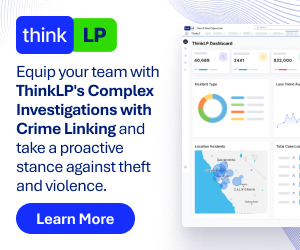retail environment
UBER enters the home delivery market
Online fraud managers looking to drive down losses and improve service standards within the carrier community have been set a new challenge as Uber has announced plans to be the latest player in the home delivery market.
In the US, Walmart are at the forefront of the initiative as CEO Doug McMillon outlined the plan to 14,000 shareholders at the University of Arkansas’s Bud Walton Arena just down the road from the company’s Bentonville headquarters.
The pilot will trial last mile deliveries by a number of different services. It plans to use Uber in Phoenix, while in Denver it is trialling a similar service called Lyft.
It has also been running a trial at its Sam’s Club operation with Deliv, involving delivery of general merchandise and grocery for business members in Miami.
Deliv is a crowd-source same day delivery service that currently operates in 17 US cities.
The Walmart system allows the customer to place the order online and select a delivery window. A personal shoppers picks the goods in the local store and Walmart requests a driver from one of the services to come to the store pick up the customer’s order, and take it directly to the customer’s location.
The delivery charge is expected to be $7-10 and is paid online. The customer does not pay the driver directly. Walmart also tells the customer which service is being used to deliver the order.
At Sam’s Club, the process is very similar, with personal shoppers preparing the orders for business members, and having their order delivered to their door with Deliv.
This is quite a different business model to that used by Asda, Walmart’s UK subsidiary which has more than 1,500 multi-compartment vans, for home delivery.
It is one thing to have groceries delivered by a uniformed member of staff driving a liveried vehicle, and quite another for them to come from a ‘bloke in a private car’ – clearly there are issues of security and safety to be taken into account.
But the system could be an option where there is not the density of deliveries to justify a dedicated vehicle.
The Walmart pilots are just starting and if they are successful they could result in a modification of the conventional business model for grocery home deliveries.
In the UK, Uber is recruiting an army of delivery drivers as it prepares to go to war with Deliveroo for a slice of the UK’s takeaway food market.
The taxi-hailing app confirmed it was finalising plans to roll out its UberEATS service in the UK as it looks for ways to build on the success of its fast-growing service.
The San Francisco-based firm has advertised for a “restaurant partnerships manager” to forge ties with British restaurants. “The role demands a unique combination of sales prowess, rapport building skills, analytical horsepower and process architecting chops,” the advert reads.
Uber is also offering a £100 signing-on fee to delivery partners, its term for bicycle and scooter drivers joining its fleet, though it is looking for drivers only in London at the moment.
UberEATS is available in the US, but the UK launch will pit the firm against Deliveroo which has grown rapidly with its model of paying drivers small sums to collect food from restaurants that do not have a delivery service.
Uber said: “UberEATS has been hugely popular in every city around the world we have launched it in, so the fact we are exploring the UK market shouldn’t come as a surprise. We’re always looking at what other services we can bring to the market here.”
Uber’s plans to expand its food delivery service to the UK, revealed on Buzzfeed, come as it prepares to launch its first major British advertising campaign.
The campaign will seek to woo customers and drivers by suggesting that the income from working for the company could help them start their own business.






